Adults get acne too
Just because your teen years are long gone doesn’t mean your skin is safe from breakouts. “Unfortunately, everyone can get acne at any age and adult acne is quite different than adolescent acne,” says Rebecca Kazin, MD, of the Washington Institute of Dermatologic Laser Surgery and the Johns Hopkins Department of Dermatology. Even if you’ve had years of clear skin, a lot of stress, your diet, and hormonal changes as you age can trigger new breakouts. Here a dozen surprising reasons you could be having acne.
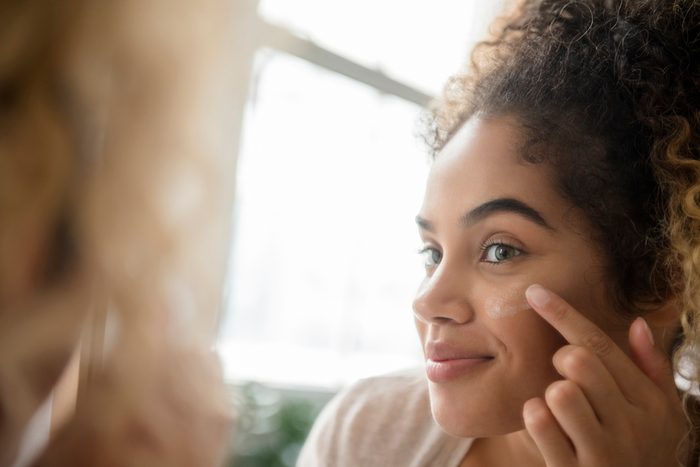
Your acne cream
It’s counterintuitive but the products you’re applying to your face to deal with your acne may be causing it in some cases, particularly if you’re using home remedies, says Jennifer Linder, MD, dermatologist, skin surgeon, national spokesperson for The Skin Cancer Foundation, and clinical faculty member in the Department of Dermatology at the University of California, San Francisco. “Coconut oil has been touted on the internet for a while as a cure-all for skin, but the truth is that it is quite comedogenic, meaning it can cause clogged pores, pimples, blackheads, or whiteheads,” she says. Essential oils, avocado, eggs, and toothpaste are all popular ingredients in DIY acne treatments that have the potential to cause more breakouts, she adds. Another potential problem is using acne creams that are too strong for your skin or ones your skin just reacts badly to.
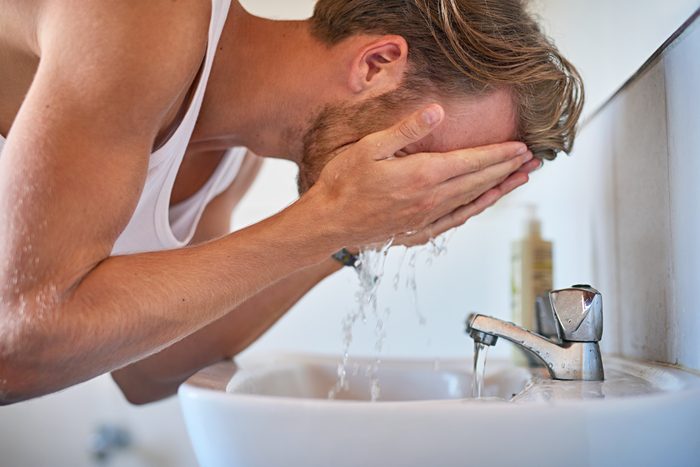
You are washing your face too much
You’re breaking out so you need to wash your face more often and with stronger cleansers, right? Wrong, Dr. Kazin says. “Washing your face any more than twice a day can dry out the skin, causing it to produce more oil to compensate,” she says. “Blasting your skin with harsh cleansers will only make it worse and you should never use antibacterial soap.” Instead, she recommends using a gentle cleanser, made specifically for the face, that contains salicylic acid to control acne. Here is the best way to wash your face to prevent acne during each stage of life.
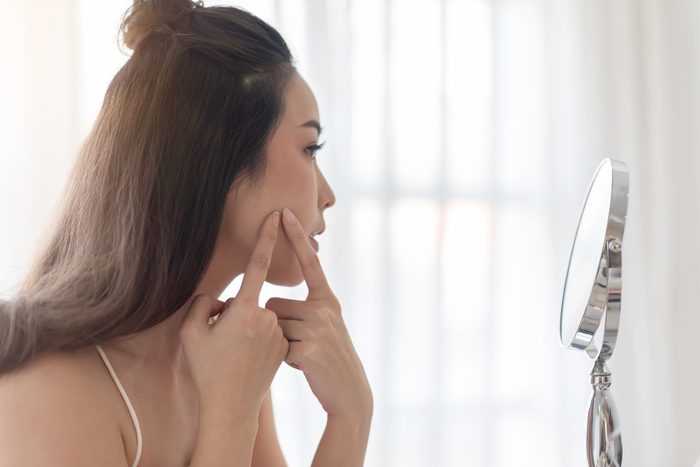
You’re popping your pimples
The one thing dermatologists universally want you to stop doing is popping your zits. “With acne, only pimples that have come to a white head are safe to extract but even then, it is best to visit an aesthetician or other skin health professional to get a treatment and have these extractions done properly,” Dr. Linder says. “Randomly squeezing papules—pimples that have not come to a head—can lead to infection, scarring, and more pimples from touching your face.”
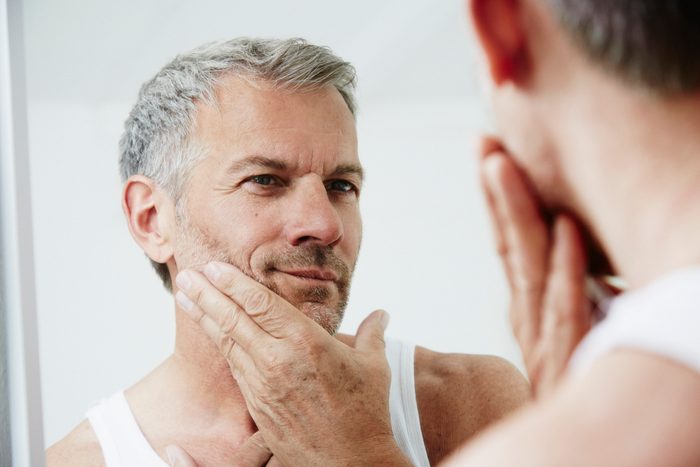
Your skin is super dry
Most people associate oily skin with breakouts but very dry skin can cause acne as well, Dr. Kazin says. “Mature skin tends to be drier in general so if you are acne-prone, know that dry skin causes inflammation which can lead to more flare-ups,” she explains. However, many people avoid using lotions because they worry it will clog their pores and make acne worse. The key is to find the right type of moisturizer, she says. “Use a non-comedogenic moisturizer (one that won’t clog your pores) daily to maintain a healthy, hydrated skin barrier and keep skin clear,” she says Check out the best moisturizers for people with acne.

You’re skipping your fruits and veggies
It’s a myth that eating pizza or chocolate will automatically cause acne but your diet can play a role in skin breakouts, Dr. Linder says. Eating an unhealthy diet—one high in processed foods and sugar and low in fruits and vegetables—can cause inflammation through your whole body and inflammation can lead to acne flare-ups, she explains. Cutting out junk food and eating a wide variety of produce can reduce inflammation and is good advice for everyone. Going beyond that to find what exactly is triggering your acne may take a little self-experimentation. “It’s possible that one person may react badly to dairy products or gluten while another will be able to eat bread and milk and be just fine,” she says. “It is very individual.” (Learn if acne face mapping can pinpoint your acne triggers.)
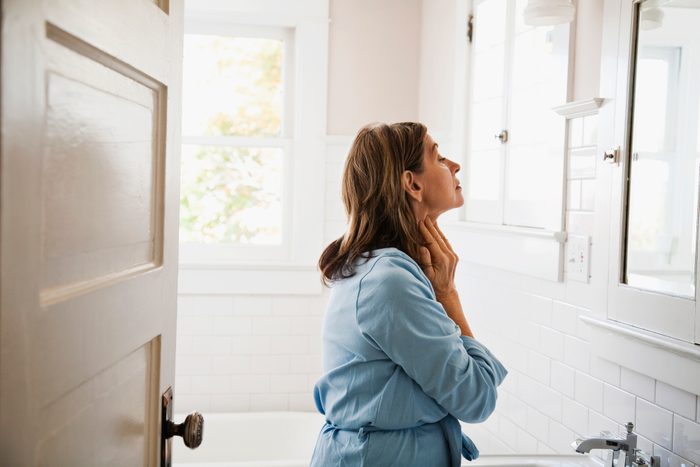
Your hormones
Hormones are a major acne culprit so it’s common to see spots flare up during periods of hormonal fluctuations. It’s why teens are so acne-prone. But this is true as an adult as well, which is why you may see hormonal acne flare-ups during pregnancy, after pregnancy, and during menopause. “When estrogen and progesterone decrease, which increases inflammatory factors that cause breakouts,” says Marina Peredo, MD, a dermatologist and associate clinical professor of dermatology at Mount Sinai Hospital in New York City. This also can happen if you’ve recently changed birth control methods or started a new type of hormonal birth control, she says. While for many women hormonal birth control clears up their skin, it’s not a slam dunk. “It can also cause acne,” she says. Because there are so many different options, if you’re experiencing acne flare-ups, talk to your doctor about trying something new. Here’s how one person cured their cystic acne in three weeks.
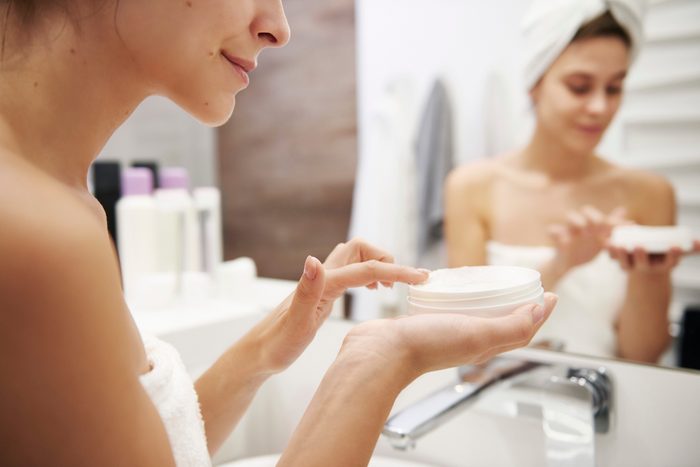
Your new skincare regimen isn’t working … yet
You bought a bunch of new products expecting an immediate improvement, but your investment doesn’t look like it’s paying off. Here’s why: It’s completely normal to continue to break out as skin goes through an adjustment period. “When you start a new regimen, it can take one to three months to see results. Some people give up after one week, but that’s not enough time,” says Dr. Peredo. Also, consider that you may not be doing enough. While a topical regimen may clear up some acne, breakouts are a multifactorial beast. You have to think about getting stress levels under control and sleeping enough (both of which can drive up inflammation in your body, bringing on breakouts)—not just slathering on cream and hoping for the best. Here are doctors’ best tricks to get a better night’s sleep.
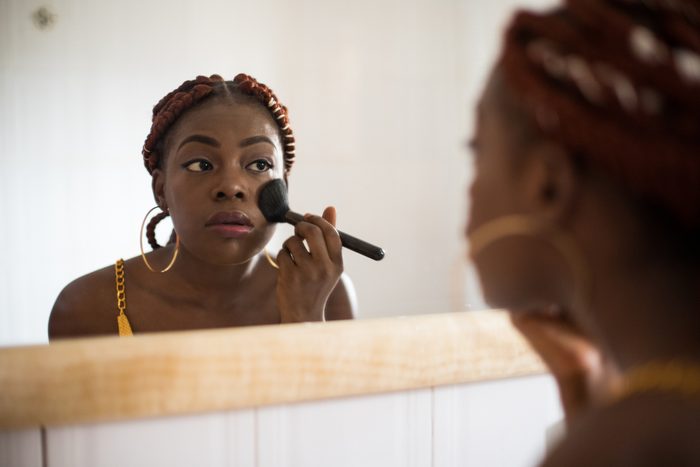
Your makeup is too heavy
It’s a natural reaction. You’re breaking out, so you slather on heavier makeup. In turn, skin can’t breathe because products plug pores and oil glands. That bolsters bacteria and causes more breakouts. The cycle repeats until you have no choice but to put on more makeup to cover the red bumps. A dermatologist can work with you to break the habit. She may put you on a topical program, oral medication, or recommend treatments like microdermabrasion or laser resurfacing to correct acne scarring. Once you get acne under control, you won’t need to be heavyhanded with the foundation or concealer. Check out these skin-care tips dermatologists use themselves.
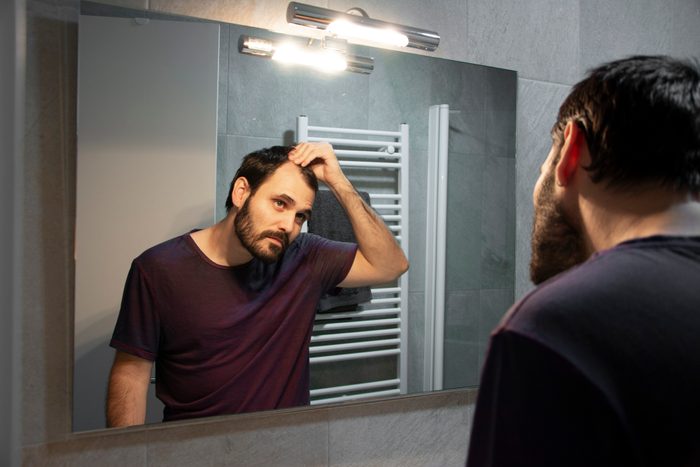
It’s your hair
If you regularly use a heavy pomade or conditioner or wash hair less often, the oil and grease from your scalp will travel onto your forehead. “If you see breakouts right by your hairline you can assume they’re due to sprays or oily conditioner,” says Dr. Peredo. She tells her patients to switch to lighter products, wash their hair more frequently, or even change their go-to hairstyle to one that keeps hair off their face.

Blame your phone
Another reason to break your phone addiction: If you hold your phone on your cheek while you talk, the accumulated dirt and sweat can cause acne in those areas, Dr. Kazin says. You may also have a mild reaction to the metal in your tech, causing a rash or acne-like bumps, Dr. Peredo adds. The solution is simple—use a speakerphone or headset for long conversations and keep your phone and your hands away from your face as much as possible.
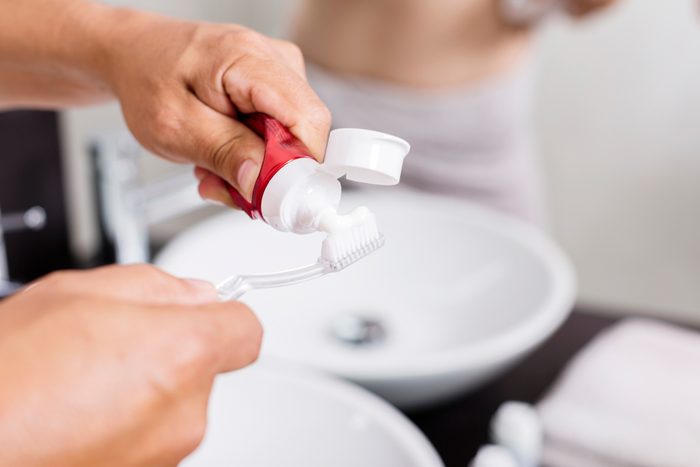
It’s the way you brush your teeth
Some people just have highly reactive skin and may get breakouts or rashes from additives, like fragrances or preservatives, in self-care products such as perfume, lotions, or even toothpaste, Dr. Linden says. These reactions can cause pimples or red bumps that look like acne. Pay close attention to your skin whenever you introduce a new product in your routine so you can pinpoint what is causing the problem, she says. Here’s how to tell if you have acne or if it’s something else.
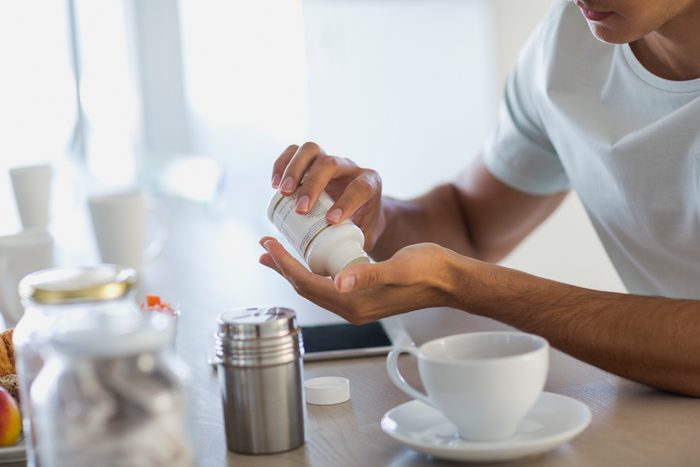
It’s your supplement
It’s not just food that triggers acne; supplements can as well, Dr. Peredo says. This is especially true for supplements that contain a lot of different ingredients, like those marketed for weight loss or bodybuilding. “Certain supplements can affect your hormonal balance which can lead to breakouts,” explains Dr. Peredo. Remember, there is no regulatory oversight for supplements in the U.S., so you may be getting something very different than what the label says. Always talk to your doctor before starting a supplement as they can cause health issues beyond acne and may interfere with other medications. Next: how to treat every type of acne.
